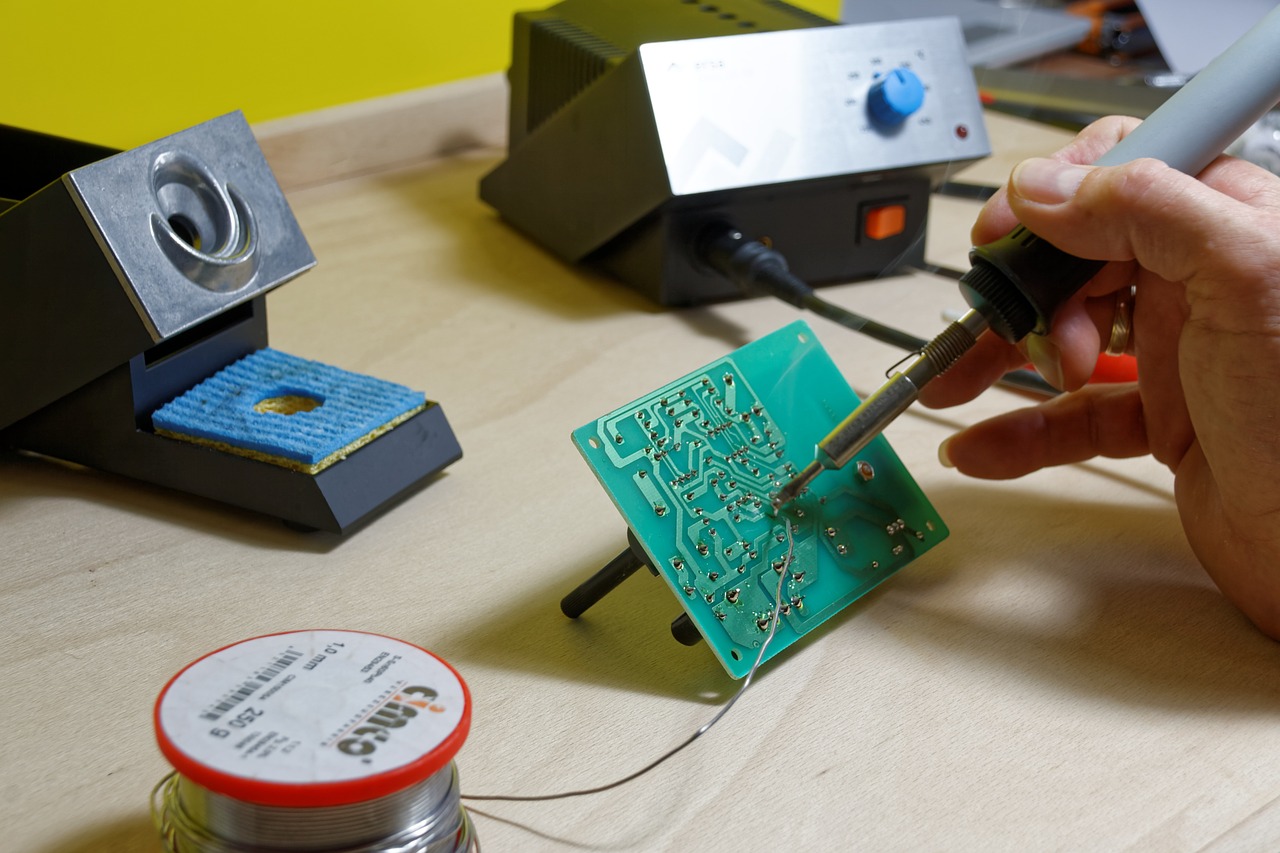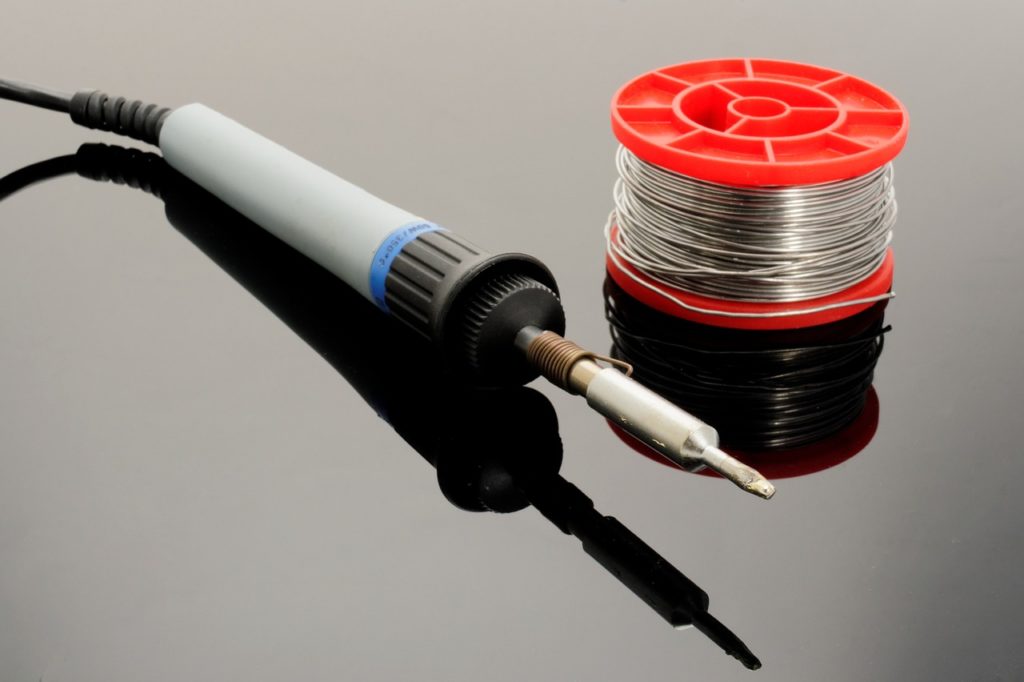Tech
What You Should Consider Before Buying Your Next Soldering Iron Kit?

The average person might use a soldering iron here and there for some woodburning projects, while others who solder frequently need a good soldering iron kit. If you belong to the second group of people, your priority should be to get the best soldering kit for the money you pay.
Let’s start by describing what a soldering iron kit is so that it becomes easier for you to pick the best one for your needs.
What is a soldering iron kit?
A soldering iron is a small pen-like tool, which is essential for many hobbyists and expert technicians. It can be used to build circuit boards, make jewelry, fix electronics, and create DIY arts and crafts. You need enough skill and precision to fuse two metallic materials. That is why it takes some time and patience to perform projects using a soldering iron kit.
Nowadays more traditional soldering iron kits have almost become obsolete even for small home repairs. You can now rely on more advanced and smarter soldering irons at affordable prices.
The equipment you can pick for your soldering needs includes the following tools: a soldering pen and soldering iron accessories. Among some of the essential accessories, you should pay attention to picking the best soldering tips.

As you can imagine, one of the most critical elements of a soldering iron kit is the electrical solder. So that’s why we want to dig deeper into some of the features you should look for in your next soldering iron:
- Temperature control: you should not underestimate this future. All soldering irons might seem the same, but each one of them requires a different temperature based on how you plan to use it.
- Wattage: we recommend you choose a soldering iron with at least 30 watts of power. If you pick soldering irons with low wattage, they will take longer to heat up. That also means they will not be consistent in keeping the same temperature for an extended period.
- Holding stand: soldering is an activity that requires a lot of patience and attention. We are not robots, so you might need to take a break here and there. A holding stand is important because it is a place where you can put down the hot iron while you work.
- Tip compatibility: the soldering tips should be replaceable. That is why your soldering iron must be compatible with a whole range of tips. You can buy tips with different sizes based on the types of jobs you will use them for. Don’t forget about the price of soldering tips. For some soldering irons, you can only use the tips from the same brand. Keep that in mind so that you can avoid spending a fortune in the long run.
- Applications: do you need a soldering iron to perform some occasional repairs or small jobs? Do you use it to build and solder your circuits? You should consider different features based on how and how often you plan to use your soldering iron.
Our recommendation
You need to search for soldering iron kits on Google to realize how many options are available on the market. If you want to start soldering as soon as possible, we highly recommend you buy a soldering iron kit from MINIWARE. Since the soldering pen is one of the most crucial components of your kit, let us introduce you our top pick: the TS80 Soldering Iron from MINIWARE. The TS80 is a smart soldering iron with a USB Type-C interface and QC3.0 standard input. It is equipped with an OLED screen so that you can check the status of your soldering iron at any time.
Soldering isn’t particularly difficult. You need to focus, keep a steady hand, and be safe. A good soldering iron kit from MINIWARE will make your life as a professional or amateur welder much easier.
Tech
My Main AI Turns Complex Workflows into Simple, Voice-Driven Conversations

By: Chelsie Carvajal
Managing modern workflows often means juggling dashboards, documents, and long email threads before a single task is complete. My Main AI Inc, an AI technology platform that spans text, image, voice, and video, has built a system where many of those steps can be handled through spoken or written prompts instead of manual clicks.
Turning Tasks Into Conversations
My Main AI groups several automation tools around a voice and chat layer so users can move through work by giving instructions rather than configuring each step. The platform lists AI Web Chat, AI Realtime Voice Chat, AI Speech‑to‑Text Pro, and AI Text‑to‑Speech engines from providers such as Lemonfox, Speechify, and IBM Watson, creating a loop between spoken input and generated output.
Speech‑to‑text tools support accurate transcription of audio content in multiple languages, with options to translate those recordings into English. That capability gives businesses a way to record meetings, calls, or field conversations, then convert the results into text that can be summarized, edited, and turned into documents or scripts. Text‑to‑speech tools, including multi‑voice synthesis with up to 20 voices and SSML controls, take written content in the other direction, producing voiceovers for training, marketing, and support material.
Chat assistants extend the same pattern to files and websites. My Main AI lists AI Chat PDF, AI Chat CSV, and AI Web Chat, which allow users to ask questions of documents or site content through natural language prompts. Instead of sorting through long reports, a user can query a file, receive concise answers, and then send follow‑up requests to generate emails, briefs, or summaries in the same environment.
From Content Pipelines to Voice‑Led Workflows
The company reports that its platform connects to more than 100 models from OpenAI, Anthropic, Google Gemini, xAI, Amazon Bedrock and Nova, Perplexity, DeepSeek, Flux, Nano Banana, Google Veo, and Stable Diffusion 3.5 Flash. Public materials state that these models support text, image, voice, and video generation in more than 53 languages, giving the voice‑driven tools reach across several regions and markets.
Content creation sits at the center of many of these workflows. My Main AI offers modules for blog posts, email campaigns, ad copy, social captions, video scripts, and structured frameworks such as AIDA, PAS, BAB, and PPPP. A user can dictate key points or paste a brief into the chat, receive draft text, ask the assistant to adjust tone or length, and then pass the result into voice synthesis to create a narrated version.
Visual tools fit into the same flow. DALL·E 3 HD, Stable Image Ultra, and an AI Photo Studio support image creation, product mock‑ups, background changes, and multiple variations from a single upload. AI Image to Video and text‑to‑video connections with engines such as Sora and Google Veo, alongside an AI Avatar feature labeled “coming soon,” make it possible to turn a spoken or typed brief into images, then into short clips that accompany the newly generated audio.
Why Businesses See Conversation as Infrastructure
Company data shared with partners cites more than 77,000 customers worldwide, annual revenue near 3 million dollars, and monthly revenue growth around 250,000 dollars, driven largely by subscription sales. The 49‑dollar plan is described as the best‑selling tier, with My Main AI presenting it as the entry point to the broader suite of conversational and automation tools.
Business‑oriented features show how these voice‑driven workflows connect to operations. The platform lists payment gateways such as AWDpay and Coinremitter, integrations with Stripe, Xero, HubSpot, and Mailchimp, and tools for SEO, finance analytics, dynamic pricing, wallet systems, and referrals. A manager can ask a chat assistant to pull figures, draft a report, and prepare customer messages, then move directly into sending campaigns or reviewing payments through linked services.
Company communications describe ongoing work on proprietary models, expanded training flows from text, PDFs, and URLs, and deeper tools for chat, analytics, and video. That roadmap suggests that My Main AI views conversation—spoken or typed—as a central control surface for complex workflows, with automation stepping in behind the scenes so users can focus on clear instructions rather than manual configuration.
-

 Tech5 years ago
Tech5 years agoEffuel Reviews (2021) – Effuel ECO OBD2 Saves Fuel, and Reduce Gas Cost? Effuel Customer Reviews
-

 Tech6 years ago
Tech6 years agoBosch Power Tools India Launches ‘Cordless Matlab Bosch’ Campaign to Demonstrate the Power of Cordless
-

 Lifestyle7 years ago
Lifestyle7 years agoCatholic Cases App brings Church’s Moral Teachings to Androids and iPhones
-

 Lifestyle5 years ago
Lifestyle5 years agoEast Side Hype x Billionaire Boys Club. Hottest New Streetwear Releases in Utah.
-

 Tech7 years ago
Tech7 years agoCloud Buyers & Investors to Profit in the Future
-

 Lifestyle5 years ago
Lifestyle5 years agoThe Midas of Cosmetic Dermatology: Dr. Simon Ourian
-

 Health7 years ago
Health7 years agoCBDistillery Review: Is it a scam?
-

 Entertainment7 years ago
Entertainment7 years agoAvengers Endgame now Available on 123Movies for Download & Streaming for Free
